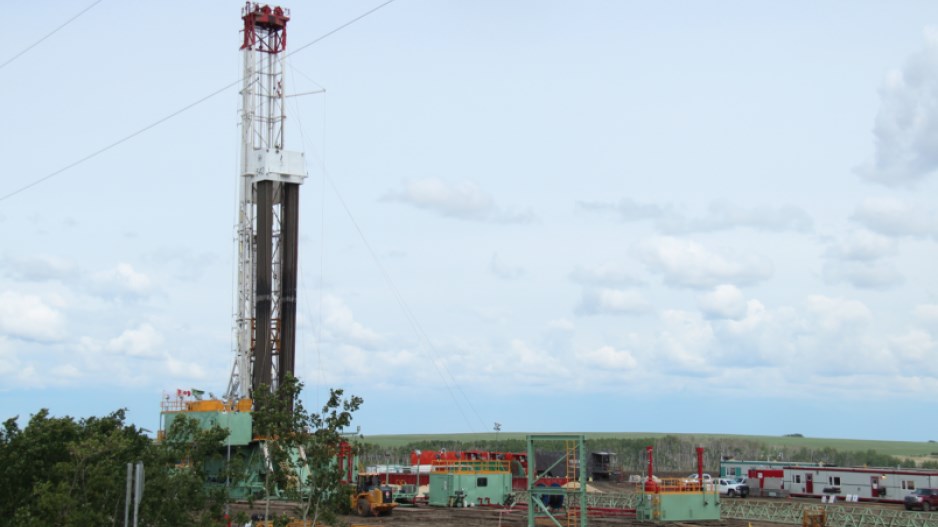2015 was a poor year for B.C.’s oil and gas incomes, and 2016 was even worse.
The province brought in just $15.5 million from its monthly land and drilling license sales in 2016—the lowest annual total in data going back to the late 1970s.
It was a decline over last year’s sales, which saw totals of just over $18 million.
The province announced the results of its Dec. 14 Crown petroleum and natural gas rights auction Thursday. Ten drilling licences, issued for five- to ten-year terms, went for an average price of $147.85 per hectare, while no land leases were sold.
The sale of drilling rights for subsurface oil and gas accounts for 30 to 70 per cent of B.C.’s total petroleum revenues, depending on market conditions, and is typically considered an indicator of future drilling activity.
Sales have been down since 2014 due to slumping oil and gas prices, as well as declining availability of high quality land. In February, the province recorded its first-ever $0 land sale.
When asked for comment, a ministry of natural gas spokesperson said B.C. isn’t alone in seeing lower natural gas revenues.
“Companies all over the world are cutting back on their expenditures because commodity prices are low, and the market influences our tenure sales,” the ministry wrote in an email. “As a result of the marketplace, it’s not surprising that tenure requests have been lower this year.”
Alberta brought in a record low $137 million at its drilling rights auctions this year.
B.C.’s auction revenues peaked in 2008, when land agents plunked down $1.2 billion for the right to drill in the province. Those revenues collapsed following the financial crisis, recovering somewhat in 2014 in anticipation of liquified natural gas development. After the boom years of the mid-2000s, the provincial auditor general required petroleum revenues to be stretched out over a period of eight years.
Bruce Ralston, B.C. NDP natural gas critic, said that means government will be able to rely on petroleum revenues less and less.
“It’s not only bad now in term of its immediate impact, it has a negative impact on revenue over the longer term,” he said.
While it’s unlikely land sale revenues will return to their previous highs, the ministry expects sales to pick up in the coming years.
According to a spokesperson, the “most promising” natural gas prospects in the Montney shale formation, Horn River Basin and Liard Basin have been bought up.
“The majority of companies in B.C. have carefully acquired large tracts of rights in these plays over the past several years, and now hold a portfolio for future exploration. These companies are not focusing on additional new land acquisitions right now.”
However, companies could be in the market for new drilling licences if LNG projects go forward.
“We are confident tenure sales will improve as the market rebounds,” the ministry said in a statement. “In addition to our LNG export prospects, we are seeing interest grow for value-added production and investment in resource areas that are considered ‘liquids rich’—natural gas that holds market value because it is used to produce products like chemicals, plastics and cleaner fuel.”
B.C. also charges royalties on natural gas extraction, which came in at $613 million in 2014.




